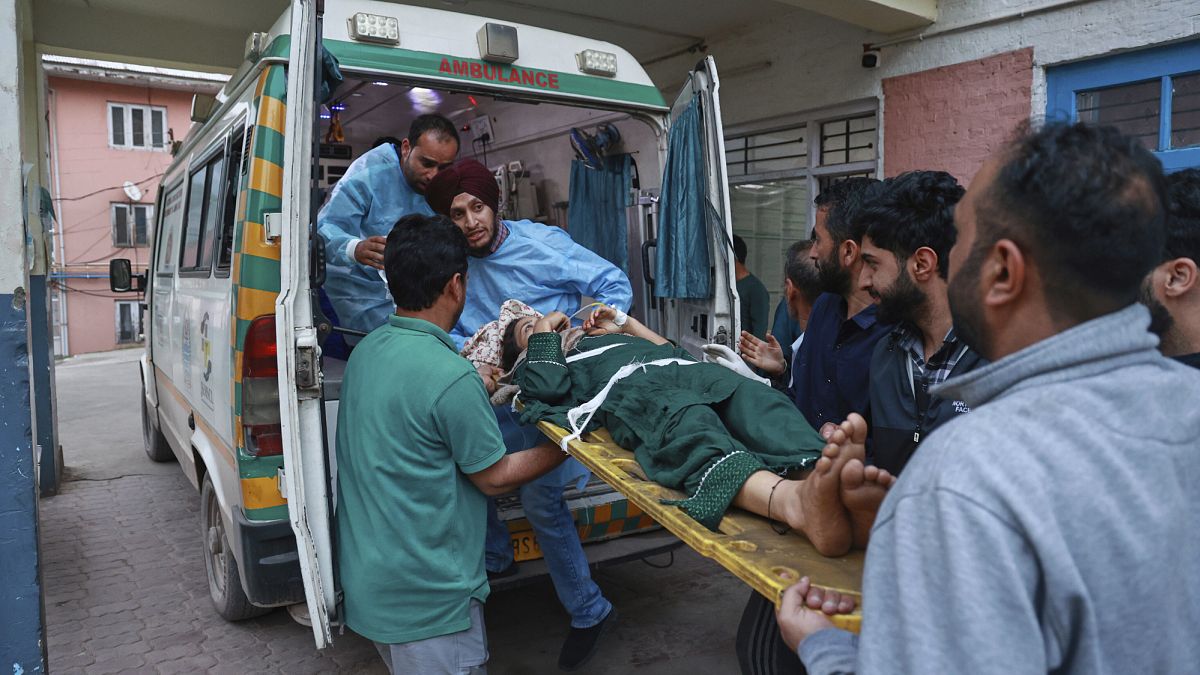India Launches Missiles into Pakistani Territory, Escalating Tensions

In a significant escalation of military tensions between India and Pakistan, India launched missiles early Wednesday into several areas of Pakistan-controlled territory, resulting in the tragic deaths of at least 31 individuals, including a child. This act has been condemned by Pakistan's Prime Minister Shehbaz Sharif, who has characterized it as an "act of war." The missiles struck infrastructure purportedly used by militants responsible for a recent deadly attack on tourists in Kashmir.
The region of Kashmir, which is claimed in its entirety by both India and Pakistan, has long been a flashpoint for conflict between the two nuclear-armed neighbors. This latest incident follows an attack last month in which gunmen killed 26 people, primarily Indian Hindu tourists, at a popular site in the disputed territory. In response to the missile strikes, Pakistan has reported shooting down several Indian fighter jets, with three aircraft reportedly crashing into villages within Indian-controlled Kashmir.
On the ground in India, police and medical sources have confirmed that at least seven civilians have also lost their lives due to retaliatory shelling from Pakistan. This cycle of violence comes amid heightened tensions stemming from the April attack and has raised fears of an escalating military confrontation.
As tensions reached a boiling point, India’s military operation was dubbed "Sindoor," named after the bright red powder traditionally worn by married Hindu women. This name was reportedly chosen to honor the victims of the Kashmir massacre, particularly the women who witnessed their spouses being killed. India's government has accused Pakistan of facilitating the original attack, a claim that Islamabad vehemently denies.
In a show of resolve, Prime Minister Narendra Modi convened a special meeting of the Cabinet Committee on Security following the spike in casualties on the Indian side, which has risen to 10. Meanwhile, the United Nations has voiced concerns over the escalation, with Secretary-General Antonio Guterres calling for maximum restraint to avert a full-blown military confrontation.
In an unusual move for peacetime, several Indian states have initiated civil defense drills aimed at preparing civilians and security forces for potential hostile attacks. The drills reflect the gravity of the current security situation and the Indian government's commitment to ensuring that its citizens are prepared for any eventuality.
In India, political leaders across various parties have expressed support for the military action. Defense Minister Rajnath Singh expressed his sentiments on social media, declaring, "Victory to Mother India." The main opposition party, Congress, echoed sentiments of national unity, praising the army's courage and resolve in defending the nation.
The missile strikes hit at least six sites in Pakistan-administered Kashmir and the eastern Punjab province, causing widespread panic and destruction. According to Lieutenant General Ahmed Sharif, Pakistan's military spokesperson, the attacks resulted in significant civilian casualties and injuries, with reports of at least 38 individuals wounded. Notably, the strikes also targeted infrastructure near a dam in Pakistan-administered Kashmir, which Sharif condemned as a violation of international norms.
India's Defence Ministry, in its defense of the military action, stated that the operations were "focused, measured, and non-escalatory in nature," emphasizing that they did not target any military facilities in Pakistan. However, Pakistan countered that the strikes hit locations affiliated with banned militant groups, raising serious concerns about the implications for regional stability.
Among the locations affected was the Subhan Mosque in Bahawalpur city, where 13 individuals, including a child, were killed. This mosque is located near a seminary previously associated with the militant group Jaish-e-Mohammed, which has been banned since 2002. Another missile struck a mosque in Muridke, causing considerable structural damage.
The recent attack on tourists was claimed by a little-known militant group named Kashmir Resistance, which India alleges is linked to Lashkar-e-Taiba. As the situation unfolds, locals in the main city of Pakistan-controlled Kashmir, Muzaffarabad, described the chaos, with witnesses reporting explosions and a mass exodus of residents seeking safety.
On the Line of Control, heavy exchanges of fire were reported, with Indian officials stating that at least seven civilians were killed and over 30 wounded in Pakistani shelling in the Poonch district. Homes were damaged, adding to the civilian toll in this volatile region. The Indian army claimed that Pakistani forces engaged in arbitrary firing across the de facto border.
In the aftermath of the missile strikes, debris from downed Indian aircraft fell onto several villages in India-controlled Kashmir, creating panic among residents. Reports indicate that three aircraft were shot down by Pakistan's air force, although Indian officials have not confirmed these claims. Residents recounted hearing massive explosions and witnessing fires that engulfed fields, further highlighting the dire consequences of this latest escalation.


























